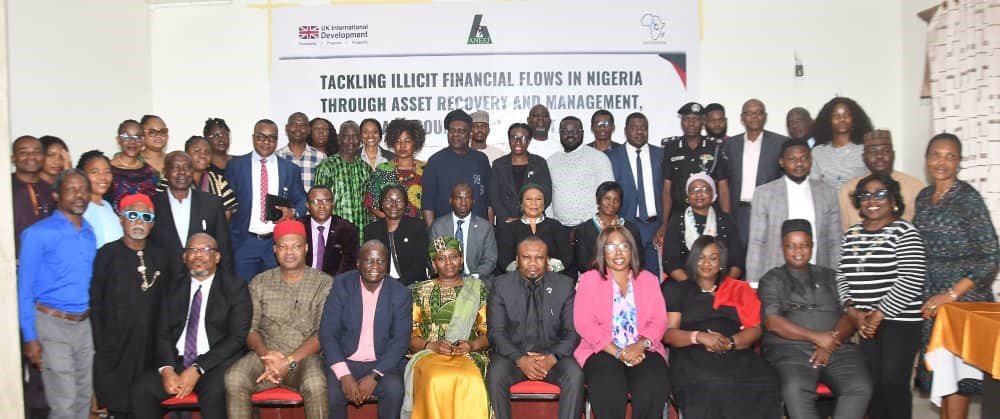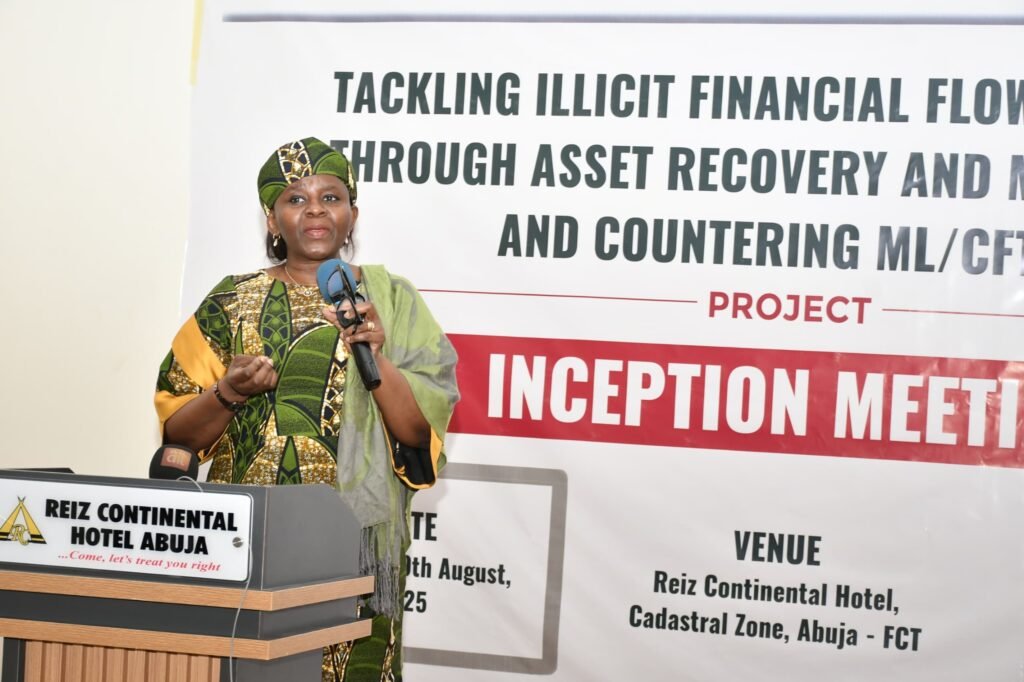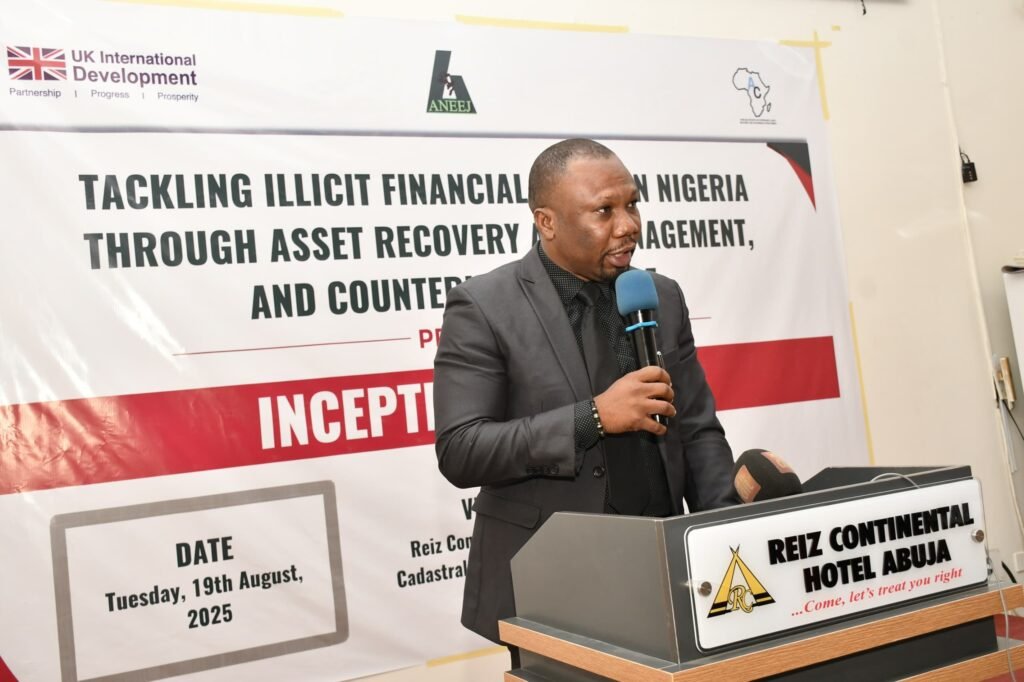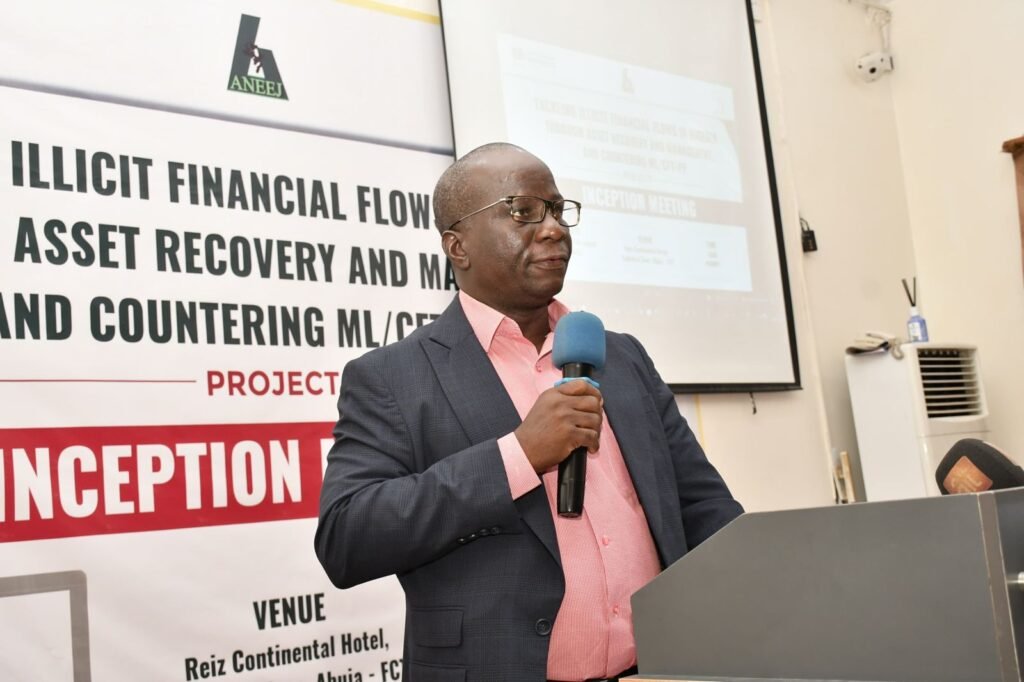
Nigeria is once again confronting the devastating impact of illicit financial flows (IFFs) on its economy and governance system. With billions of dollars lost annually to corruption, tax evasion, money laundering, terrorism financing, and other financial crimes, the country is seeking new approaches to close loopholes, recover stolen assets, and ensure transparency in asset management.
At the heart of this renewed effort is the newly launched Illicit Finance Resilience Project, implemented by the Africa Network for Environment and Economic Justice (ANEEJ) in partnership with the African Center for Governance, Asset Recovery and Sustainable Development, with support from the UK Foreign, Commonwealth and Development Office (FCDO).
The project’s inception meeting in Abuja brought together key players from government, civil society, international organizations, and the media. Juliet Ibekaku-Nwagwu, Executive Director of the African Center, stressed the urgency of strengthening Nigeria’s asset recovery framework. She explained that the initiative would provide technical expertise and build the capacity of investigators and prosecutors to better align with the Proceeds of Crime Act. According to her, this approach will ensure that assets traced and confiscated are not only recovered but also managed transparently and reinvested for the benefit of Nigerians.

Rev. David Ugolor, Executive Director of ANEEJ, highlighted the scale of the challenge, noting that Africa loses about $150 billion annually to illicit financial flows, with Nigeria alone accounting for nearly 20 percent of that figure. He emphasized the need for sustainable partnerships between government institutions and civil society to ensure that recovered resources are reinvested in sectors that directly improve citizens’ lives.
The UK Government, represented by Anicetus Atakpu on behalf of its Illicit Finance Advisor, reaffirmed its commitment to supporting Nigeria’s asset recovery efforts. The message was clear: reinvesting recovered assets into public goods and services remains one of the most effective ways to curb corruption and deliver justice.

International backing also came from the United Nations Office on Drugs and Crime (UNODC), whose Anti-Corruption Coordinator for Nigeria, Princess Aruoriwoh-Esmer Chifiero, praised the collaboration between government, civil society, and development partners. She assured that the UN’s Stolen Asset Recovery (StAR) Initiative would continue to work with Nigeria to strengthen asset recovery and return processes.
National institutions equally pledged support. The Nigerian Financial Intelligence Unit (NFIU), the Independent Corrupt Practices and Other Related Offences Commission (ICPC), the Federal Inland Revenue Service (FIRS), the National Agency for the Prohibition of Trafficking in Persons (NAPTIP), and the National Drug Law Enforcement Agency (NDLEA) all committed to closer collaboration in tracing, confiscating, and managing illicit assets. From the extractive industries, where some of Nigeria’s largest leakages occur, the Executive Secretary of the Nigeria Extractive Industries Transparency Initiative (NEITI), Dr. Orji Ogbonnaya Orji, warned that unless loopholes in oil, gas, and mining governance are closed, asset recovery would remain a revolving door, recovering stolen wealth today only to lose more tomorrow.

The Honourable Attorney-General of the Federation and Minister of Justice, Prince Lateef Fagbemi SAN, represented by Ali Bozi of the Asset Recovery and Management Unit, also pledged the Ministry’s support. He described illicit financial flows as one of the most significant threats to sustainable development, governance, and national security, but assured stakeholders that the government is determined to fully cooperate in ensuring the project’s success.
With more than 60 representatives in attendance, the inception meeting ended with a clear consensus: the fight against illicit financial flows cannot be won by the government alone. Civil society, technical experts, and international partners must remain actively engaged to build resilience into Nigeria’s financial governance system. For the African Center and its partners, the Illicit Finance Resilience Project is not just about chasing stolen assets but about building a sustainable culture of accountability where recovered wealth is transparently managed and reinvested into education, healthcare, infrastructure, and jobs. Illicit financial flows remain a grave threat to Nigeria’s development, but through coordinated partnerships such as this project, the country has a real chance to finally turn the tide.


